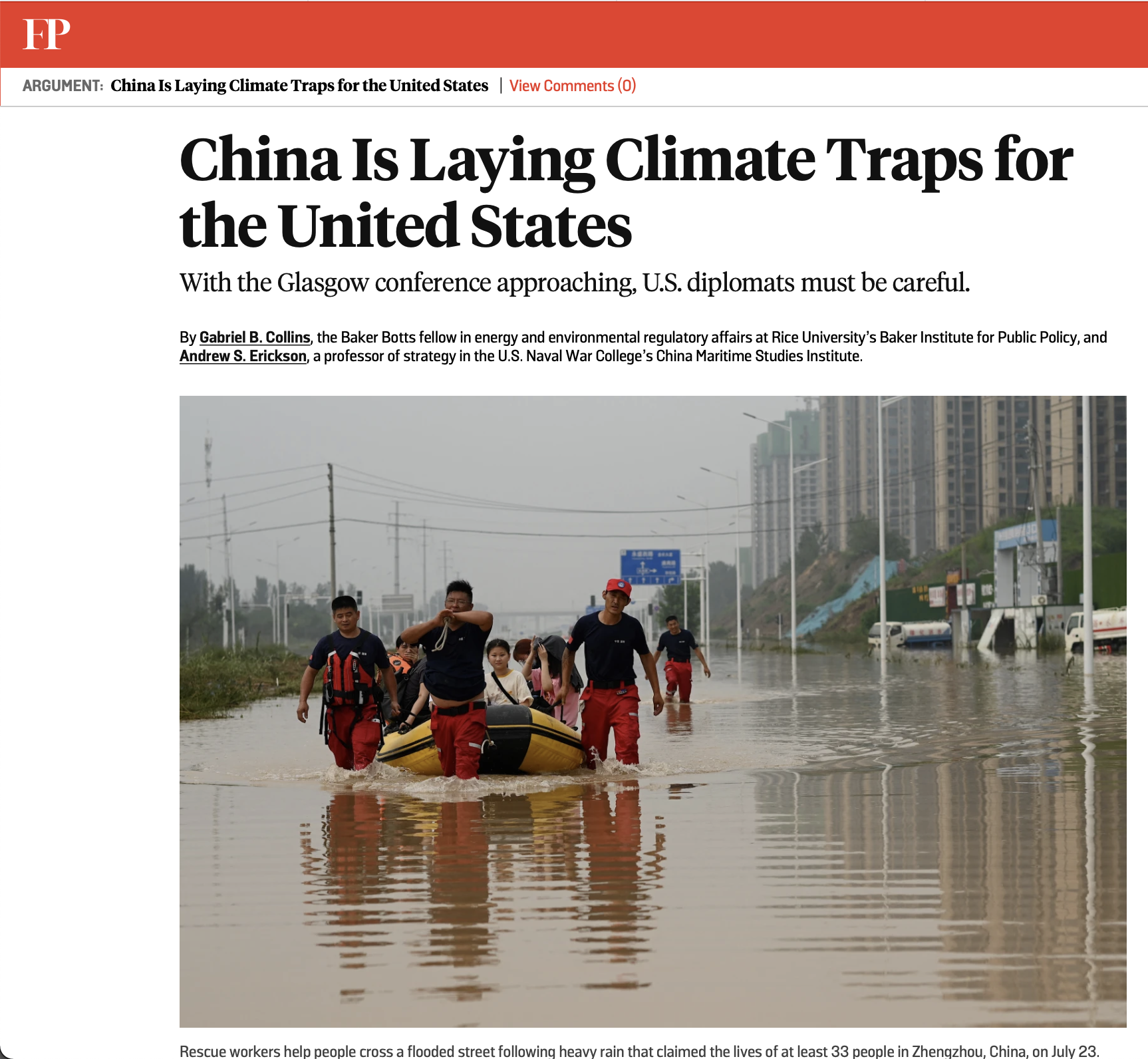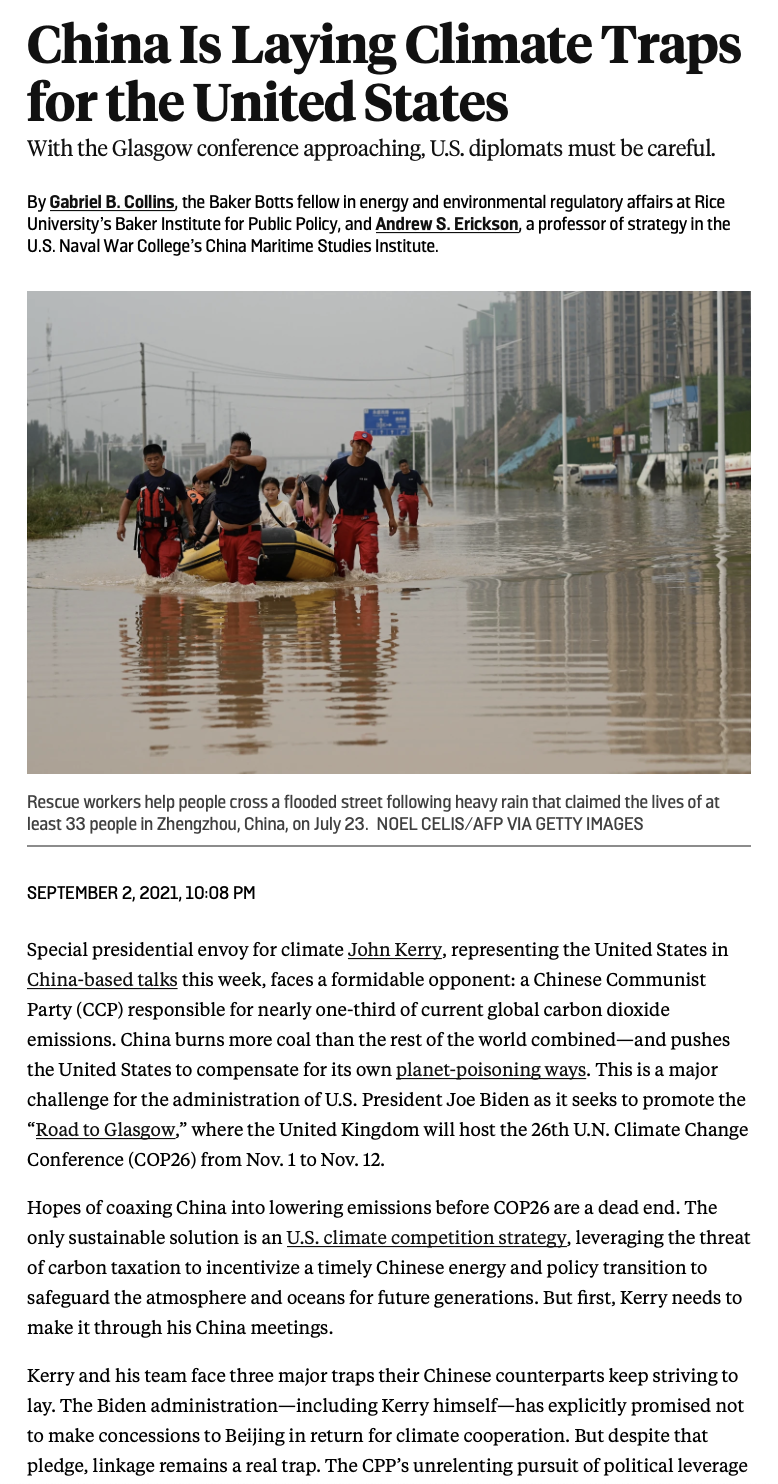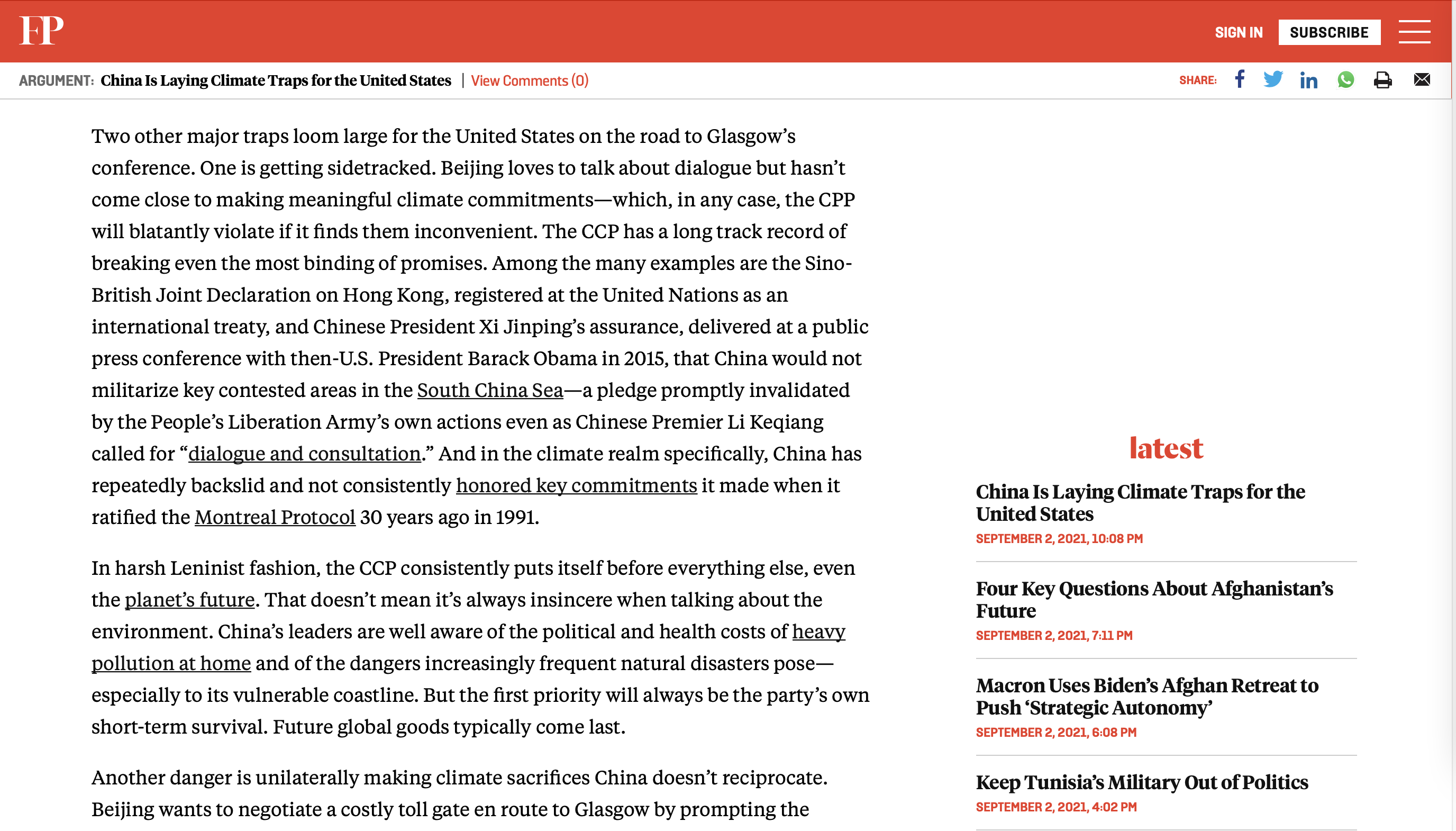China Is Laying Climate Traps for the United States
Gabriel B. Collins and Andrew S. Erickson, “China Is Laying Climate Traps for the United States,” Foreign Policy, 2 September 2021.
With the Glasgow conference approaching, U.S. diplomats must be careful.
By Gabriel B. Collins, the Baker Botts fellow in energy and environmental regulatory affairs at Rice University’s Baker Institute for Public Policy, and Andrew S. Erickson, a professor of strategy in the U.S. Naval War College’s China Maritime Studies Institute.
Special presidential envoy for climate John Kerry, representing the United States in China-based talks this week, faces a formidable opponent: a Chinese Communist Party (CCP) responsible for nearly one-third of current global carbon dioxide emissions. China burns more coal than the rest of the world combined—and pushes the United States to compensate for its own planet-poisoning ways. This is a major challenge for the administration of U.S. President Joe Biden as it seeks to promote the “Road to Glasgow,” where the United Kingdom will host the 26th U.N. Climate Change Conference (COP26) from Nov. 1 to Nov. 12.
Hopes of coaxing China into lowering emissions before COP26 are a dead end. The only sustainable solution is an U.S. climate competition strategy, leveraging the threat of carbon taxation to incentivize a timely Chinese energy and policy transition to safeguard the atmosphere and oceans for future generations. But first, Kerry needs to make it through his China meetings.
Kerry and his team face three major traps their Chinese counterparts keep striving to lay. The Biden administration—including Kerry himself—has explicitly promised not to make concessions to Beijing in return for climate cooperation. But despite that pledge, linkage remains a real trap. The CPP’s unrelenting pursuit of political leverage at home and abroad invariably overrides its concern for the climate.
Leading-emitter China keeps pushing to link its political priorities to other countries’ climate priorities. And progressive groups keep pushing the administration to dance with the devil and accept this Faustian bargain. But make no mistake: When foreign supplicants collide with the CCP’s self-interest, they will pay with both upfront concessions and wasted time, during which critical climate systems could be pushed beyond the point of no return.
And there is little possibility of domestic accountability in China itself because the CCP harshly suppresses environmental and climate dissent. It won’t even accept or air the professional assessments of its own environmental officials in key instances. Case in point: former China Central Television journalist Chai Jing, known as “China’s Rachel Carson.” Soon after being commended by Chinese Minister of Environmental Protection Chen Jining, her 2015 TED-style documentary, Under the Dome, was abruptly censored—as were her personal communications and even Chen’s own discussion of her. Silencing China’s Silent Spring-inspired movement before it could even begin to stimulate badly needed discussion speaks louder than any words. Moreover, even after the disastrous Henan floods, Chinese state media coverage after major Chinese weather disasters tends to avoid mentioning climate change, let alone acknowledging China’s own emissions might be a factor influencing it. All the more reason Beijing’s so-called progressive climate sweet talk is only for naïve ears.
Two other major traps loom large for the United States on the road to Glasgow’s conference. One is getting sidetracked. Beijing loves to talk about dialogue but hasn’t come close to making meaningful climate commitments—which, in any case, the CPP will blatantly violate if it finds them inconvenient. The CCP has a long track record of breaking even the most binding of promises. Among the many examples are the Sino-British Joint Declaration on Hong Kong, registered at the United Nations as an international treaty, and Chinese President Xi Jinping’s assurance, delivered at a public press conference with then-U.S. President Barack Obama in 2015, that China would not militarize key contested areas in the South China Sea—a pledge promptly invalidated by the People’s Liberation Army’s own actions even as Chinese Premier Li Keqiang called for “dialogue and consultation.” And in the climate realm specifically, China has repeatedly backslid and not consistently honored key commitments it made when it ratified the Montreal Protocol 30 years ago in 1991. … … …











































